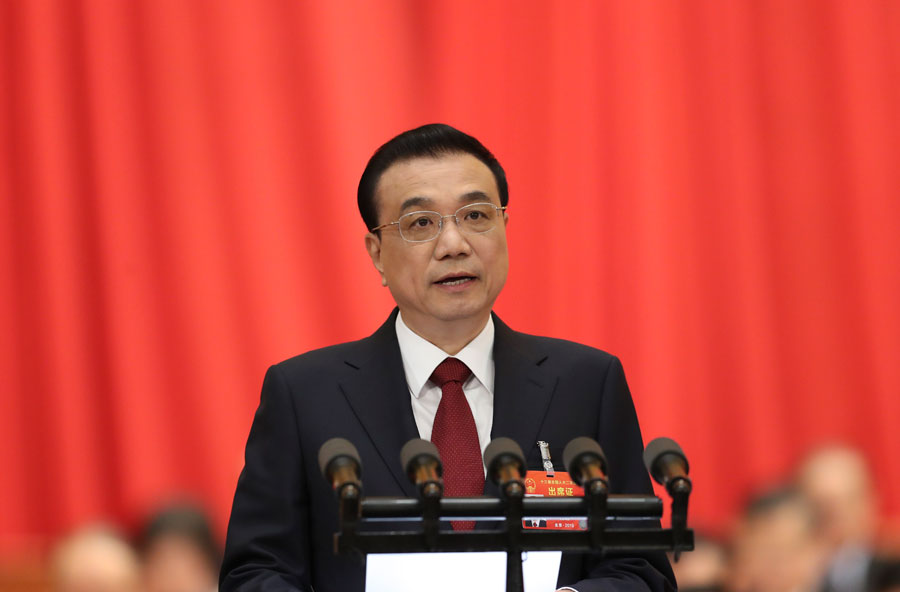Despite economic headwinds, report inspires confidence: China Daily editorial
chinadaily.com.cn | Updated: 2019-03-05 20:52

Some people seem to have an incurable dread of China becoming economically stronger. But what worries more minds these days is whether the world's second-largest economy can continue growing as it has over the past few decades.
For those concerned the economy is losing steam, the report Premier Li Keqiang delivered on behalf of the central government to China's national legislature on Tuesday should have eased their apprehensions. It combined coolheaded judgments about the troubles the country faces with an outline of the planned countermoves, giving due respect to their present and future consequences.
It offered additional evidence that a readjustment is under way in the expectation of a tough struggle ahead.
Considering the downward pressure that has mounted on the world's most dynamic economy, the battle is viewed as tougher going forward. But it is a struggle that Beijing is clearly resolved and prepared to win.
The report makes clear that no stone will be left unturned to tap the tremendous potential of the Chinese economy, and make sure growth remains "within a reasonable range" of 6 to 6.5 percent.
In other words, although the target range for growth has seen a slight downward adjustment, the general idea is to continue structural reforms for long-term development, while stabilizing the employment and financial situations, foreign trade, overseas and domestic investment as well as expectations.
And even with the lower target range for GDP growth, the Chinese economy has "sufficient resilience" to continue contributing powerful dynamism to the world economy, which is what those who have been anxiously drumming their fingers will have been hoping to hear.
To achieve the goals set out in the report, the government will ease the tax burden on manufacturing and small and micro enterprises and help them solve their fundraising problems.
And while committing to driving the all-around deepening of reforms with a high level of openness, the report put more emphasis on ensuring the country's openness is rules-based.
In addition to further loosening market access, shortening the negative list for overseas investments, and allowing solely foreign-funded enterprises to operate in more areas, the report promised a dovetailing with internationally accepted economic and trade rules, increased policy transparency and consistency in enforcement. The aim, as indicated, is to create a "just market environment where domestic and overseas companies are treated equally and compete fairly".
For the rest of the world, broader market access and rules-based openness will no doubt be more welcome and prove more valuable than any growth figures.
























